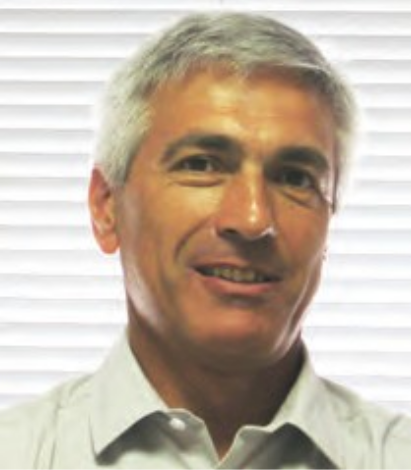Keynote 1: ETSI TC "Environmental Engineering" standardization activities in the field of environmental sustainability for ICTs, Beniamino Gorini, Alcatel Lucent [slides]
Abstract:
ETSI is actively contributing in writing specifications in support to the European Commission initiatives to meet the objectives defined in the Commission Recommendation of 9 October 2009 on "Mobilising Information and Communications Technologies to facilitate the transition to an energy-efficient, low-carbon economy". This objective, known as "20 - 20 by 2020", is to save 20% of the EU's energy consumption compared with projections for 2020 and endorses the target of a 20% reduction of greenhouse gas emissions by 2020.
For the achievement of this goal, ETSI is defining standards for metrics and rules for environmental sustainability of ICT equipment and infrastructures that meet the objectives of the involved parties by providing a top-down approach applying environmental conscious design for products and infrastructures from development phase until the end of life. In this respect, an overview of the standardization programme managed in ETSI Technical Committee "Environmental Engineering" will be provided to the audience with specific focus on standards for energy efficiency and assessment of environmental impact of equipment, systems and networks. These standards span from measurement methods, metrics and indicators to determine energy efficiency of ICT equipment and infrastructures, to improvement of energy efficiency of power architectures in telecommunication and data centers.
Link between ETSI standards and European regulations on environmental sustainability applicable to ICT will be also presented.
 Short bio:
Beniamino Gorini has achieved the Degree in Electronic Engineer in 1985 at the University "Politecnico" of Milano, Italy. Since 1987 he has been working in telecommunication industries starting in Telettra, an Italian provider of telecom equipment, that became later part of the Alcatel group and now Alcatel-Lucent group that is a worldwide supplier of telecom products.
Short bio:
Beniamino Gorini has achieved the Degree in Electronic Engineer in 1985 at the University "Politecnico" of Milano, Italy. Since 1987 he has been working in telecommunication industries starting in Telettra, an Italian provider of telecom equipment, that became later part of the Alcatel group and now Alcatel-Lucent group that is a worldwide supplier of telecom products.
He started is working experience in Research & Development department as design engineer of power supply units and later moved to Quality Department where he went through positions of EMC compliance manager, Environmental compliance manager, Product quality compliance manager and standardization coordinator. He is now in charge of Qualification laboratories for EMC, safety and environmental topics in Alcatel-Lucent Italy and has also the responsibility for the Standardization and Environmental matters in the Transport Product Line.
He is involved in the standardization bodies since 1989, with main focus on EMC, safety, environmental, Electromagnetic field radiation and reliability. He had various roles in International Standardization bodies and is currently chairman of the ETSI TC "Environmental Engineering", chairman of IEC/CISPR SC-H "Emission limits", Co-chairman of the CEN/CENELEC/ETSI joint WG on Mandate M/462 "Energy efficiency in ITC", Vice-chairman of ETSI ERM-EMC WG, convenor of IEC/CISPR SC-A/WG2 "EMC test methods".
Keynote 2: New Services for Energy Demand Management, Dr. Milan Prodanovic, Institute IMDEA Energy [slides]
Abstract:
Power networks around the world are in the process of the paradigm change and the well-established businesses of electricity generation, transmission, distribution and retail are not decoupled any longer as they traditionally used to be. This additional level of their interdependence offers many opportunities for the sector of services to step in and present new solutions for demand management. The principal objective is to achieve an increased level of power system flexibility necessary for future connection of renewable resources and various types of industrial and residential loads. In this presentation the role of the new services developed specifically for management of power network resources and industrial and residential demand will be explained and some representative examples introduced.
 Short bio:
Dr. Milan Prodanovic received his B.Sc. and Ph.D. degrees in electrical engineering from University of Belgrade, Serbia and Imperial College, London, UK respectively. After being employed by GVS engineering company (Serbia) developing power electronic circuits and control algorithms for UPS systems, he moved to Imperial College where he was engaged in a number of academic and industrial projects ranging from integration of distributed generation and control of large scale power converters for microgrids application to decentralised and real-time algorithms for power network control. In 2010 Milan moved to Institute IMDEA Energy and took charge of the Electrical Systems Unit. His research interests lie in control and design of power electronic systems, real-time control of distribution power networks, energy efficiency in industrial applications and active management of microgrids and energy systems.
Short bio:
Dr. Milan Prodanovic received his B.Sc. and Ph.D. degrees in electrical engineering from University of Belgrade, Serbia and Imperial College, London, UK respectively. After being employed by GVS engineering company (Serbia) developing power electronic circuits and control algorithms for UPS systems, he moved to Imperial College where he was engaged in a number of academic and industrial projects ranging from integration of distributed generation and control of large scale power converters for microgrids application to decentralised and real-time algorithms for power network control. In 2010 Milan moved to Institute IMDEA Energy and took charge of the Electrical Systems Unit. His research interests lie in control and design of power electronic systems, real-time control of distribution power networks, energy efficiency in industrial applications and active management of microgrids and energy systems.


